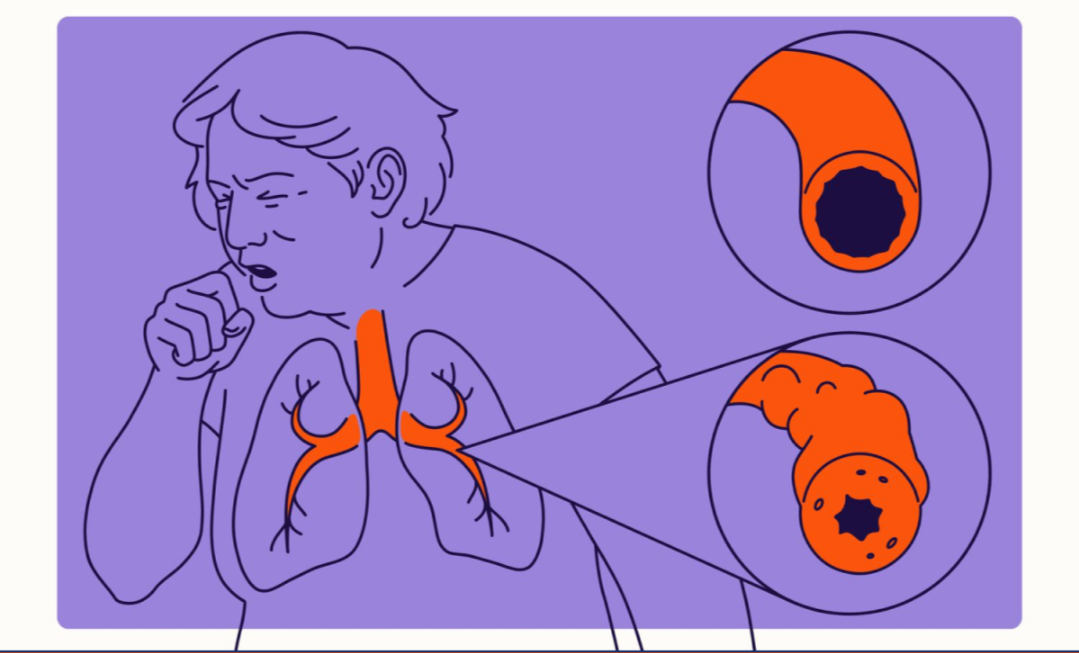Effective Throat Mucus Management Strategies
Managing throat mucus often involves staying hydrated, using humidifiers, and avoiding irritants like smoke. Saline rinses and certain over-the-counter remedies may also help. Identifying the underlying cause, such as allergies or infections, is important for effective relief.

Understanding Throat Mucus Management Fundamentals
Effective throat mucus management begins with recognizing that mucus serves as a protective mechanism for the respiratory system, trapping harmful particles and pathogens before they reach the lungs. When mucus production becomes excessive or thickened, it can create breathing difficulties, persistent coughing, and throat irritation. Managing this condition requires a comprehensive approach that addresses both immediate symptoms and underlying causes.
Common triggers for increased mucus production include respiratory infections, allergies, environmental irritants, certain medications, and underlying health conditions such as gastroesophageal reflux disease. Identifying specific triggers helps healthcare providers develop targeted treatment plans that address individual needs and circumstances.
Comprehensive Mucus Management in Throat Conditions
Mucus management in throat conditions involves multiple therapeutic approaches designed to reduce production, thin existing secretions, and facilitate easier removal. Hydration plays a crucial role in this process, as adequate fluid intake helps maintain optimal mucus consistency and prevents thickening that can worsen symptoms.
Steam therapy represents another effective intervention, utilizing warm, moist air to loosen thick secretions and provide immediate relief. This can be achieved through hot showers, steam inhalation, or specialized humidification devices. Additionally, saline rinses and gargling with warm salt water can help remove excess mucus while soothing irritated throat tissues.
Dietary modifications may also support mucus management efforts. Reducing dairy intake, avoiding processed foods, and incorporating anti-inflammatory ingredients like ginger, turmeric, and garlic can help minimize excessive mucus production in some individuals.
Practical Throat Mucus Management Guide Approaches
A comprehensive throat mucus management guide should include both immediate relief strategies and long-term prevention methods. Immediate interventions focus on symptom relief through techniques such as controlled coughing, postural drainage, and throat clearing exercises that help expel accumulated secretions safely and effectively.
Long-term management strategies emphasize lifestyle modifications that reduce mucus production over time. These include maintaining optimal indoor air quality through proper ventilation and air filtration, avoiding known irritants such as cigarette smoke and strong chemicals, and managing underlying conditions that contribute to excessive mucus formation.
Professional medical evaluation becomes necessary when symptoms persist despite self-care measures, worsen progressively, or accompany concerning symptoms such as blood in sputum, severe breathing difficulties, or persistent fever. Healthcare providers can prescribe targeted medications, including expectorants, mucolytics, and anti-inflammatory treatments when appropriate.
Professional Treatment Options and Approaches
Healthcare professionals offer various treatment modalities for managing persistent throat mucus, ranging from prescription medications to specialized therapeutic interventions. Expectorant medications help thin mucus secretions, making them easier to cough up and clear from the respiratory tract.
Mucolytic agents work by breaking down the chemical structure of mucus, reducing its viscosity and facilitating removal. These medications are particularly beneficial for individuals with chronic conditions that cause thick, sticky secretions that are difficult to clear naturally.
In cases where underlying infections contribute to excessive mucus production, healthcare providers may prescribe antibiotics or antiviral medications to address the root cause. Additionally, anti-histamines or corticosteroids may be recommended when allergic reactions or inflammatory processes drive mucus overproduction.
Cost Considerations for Throat Mucus Treatment
Treatment costs for throat mucus management vary significantly depending on the approach chosen and individual insurance coverage. Over-the-counter remedies such as expectorants, saline rinses, and humidifiers typically range from $10 to $50, making them accessible initial treatment options for many individuals.
Professional medical consultations generally cost between $150 to $300 for initial evaluations, with follow-up appointments ranging from $75 to $150. Prescription medications can vary widely in cost, with generic expectorants starting around $15 to $30 monthly, while specialized mucolytic medications may cost $50 to $200 per month depending on specific formulations and dosages.
| Treatment Type | Provider/Option | Cost Estimation |
|---|---|---|
| Over-the-Counter Expectorants | Pharmacies/Retail Stores | $10-$30 per month |
| Professional Consultation | Primary Care Physicians | $150-$300 initial visit |
| Prescription Mucolytics | Specialty Pharmacies | $50-$200 per month |
| Steam Therapy Equipment | Medical Supply Companies | $25-$100 one-time cost |
Prices, rates, or cost estimates mentioned in this article are based on the latest available information but may change over time. Independent research is advised before making financial decisions.
Prevention and Long-Term Management
Preventing excessive throat mucus production requires consistent attention to environmental factors and lifestyle choices that influence respiratory health. Maintaining adequate hydration, typically 8-10 glasses of water daily, helps keep mucus at optimal consistency and supports natural clearing mechanisms.
Indoor air quality management through regular HVAC maintenance, appropriate humidity levels between 30-50%, and minimizing exposure to dust, pet dander, and chemical irritants can significantly reduce mucus production triggers. Regular hand washing and avoiding close contact with individuals experiencing respiratory infections also helps prevent viral and bacterial causes of increased mucus production.
Effective throat mucus management combines immediate relief strategies with long-term prevention approaches tailored to individual needs and circumstances. While many cases respond well to conservative self-care measures, persistent or worsening symptoms warrant professional medical evaluation to rule out underlying conditions and ensure appropriate treatment. By understanding available options and implementing comprehensive management strategies, individuals can achieve significant improvement in their respiratory comfort and overall quality of life.
This article is for informational purposes only and should not be considered medical advice. Please consult a qualified healthcare professional for personalized guidance and treatment.




